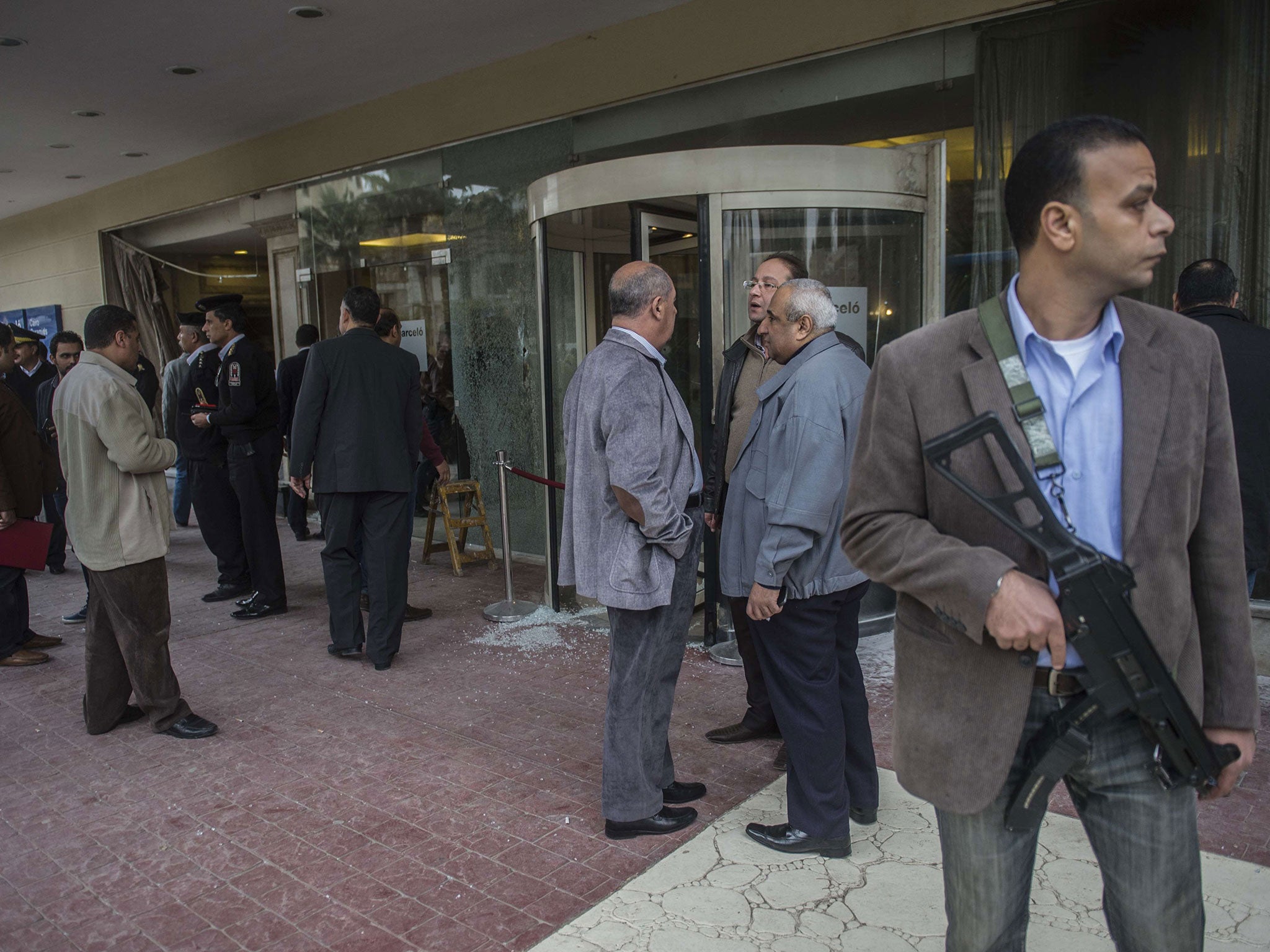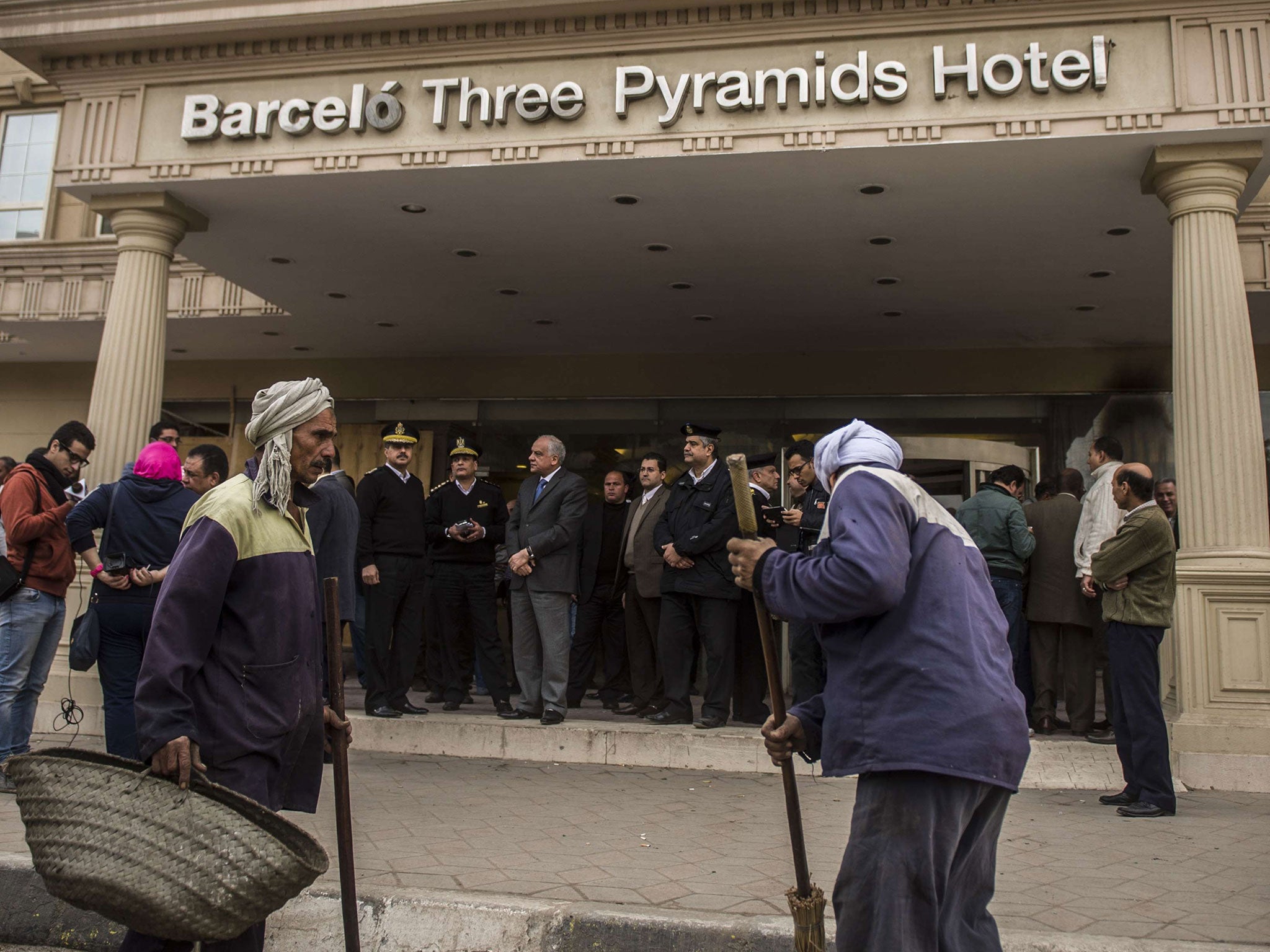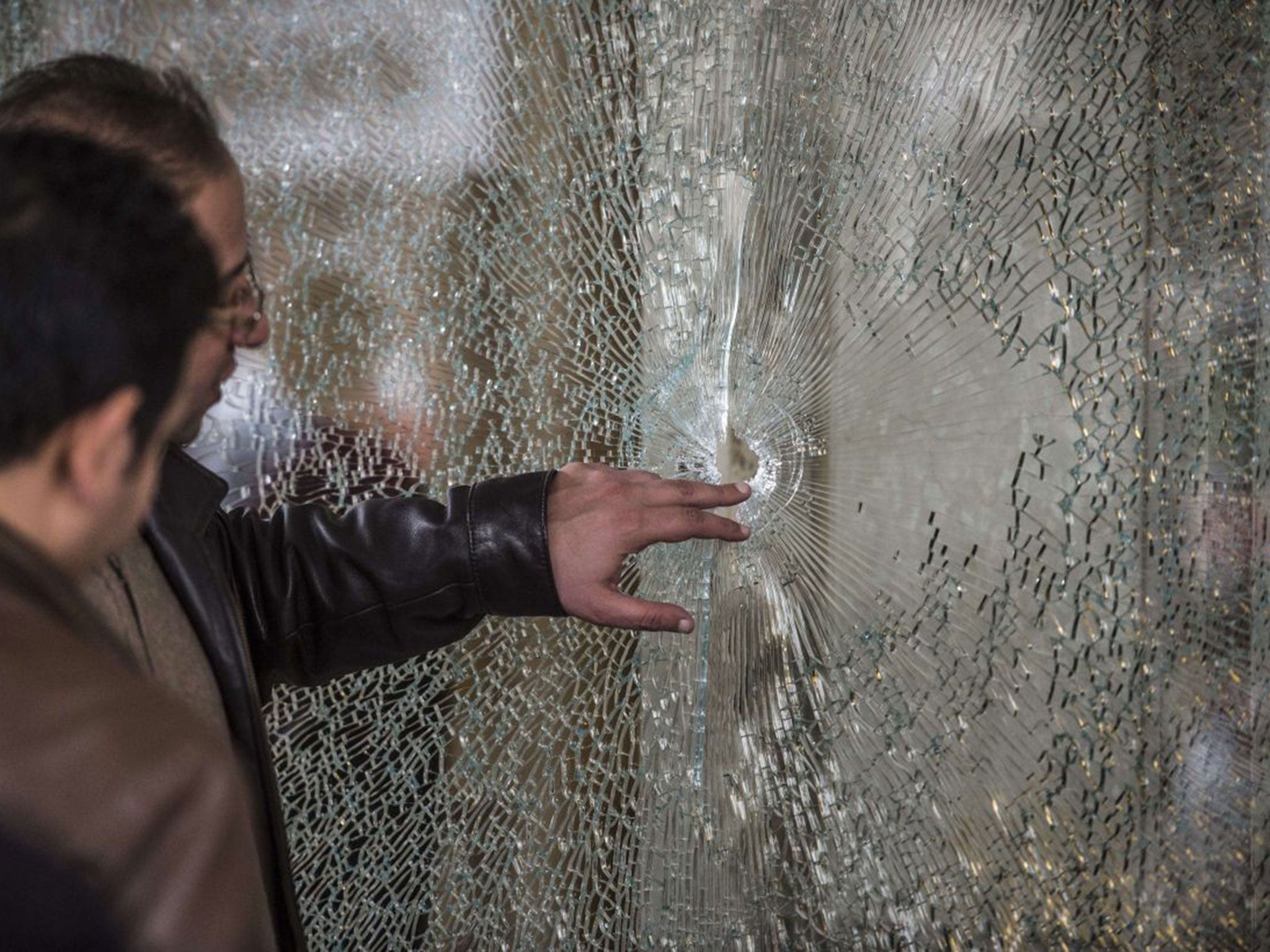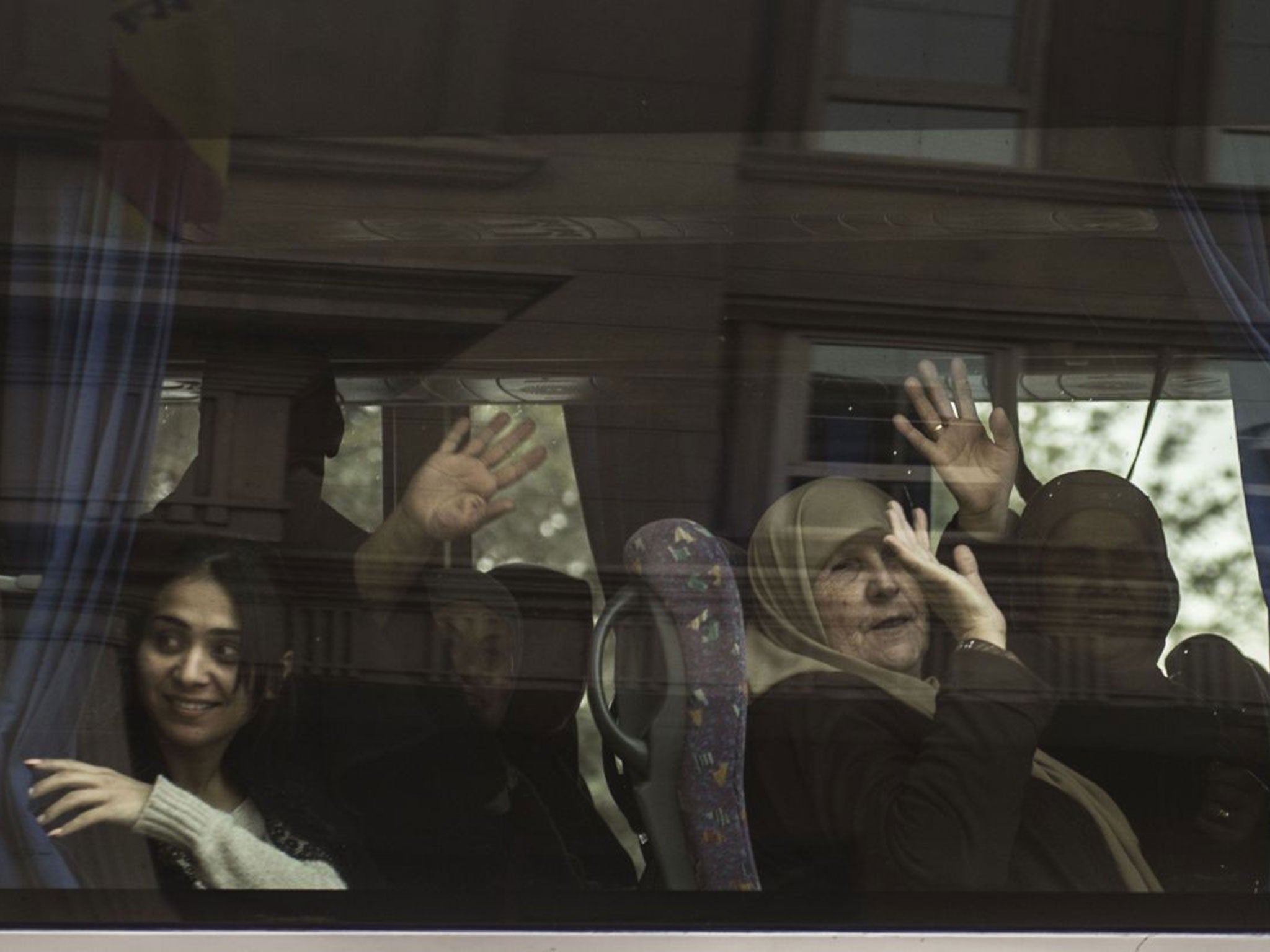Cairo attack: Egyptian government says 'tourists not targeted' by gang that shot at hotel near pyramids
There were conflicting reports about the weapons used in the attack, which did not cause any injuries
Your support helps us to tell the story
From reproductive rights to climate change to Big Tech, The Independent is on the ground when the story is developing. Whether it's investigating the financials of Elon Musk's pro-Trump PAC or producing our latest documentary, 'The A Word', which shines a light on the American women fighting for reproductive rights, we know how important it is to parse out the facts from the messaging.
At such a critical moment in US history, we need reporters on the ground. Your donation allows us to keep sending journalists to speak to both sides of the story.
The Independent is trusted by Americans across the entire political spectrum. And unlike many other quality news outlets, we choose not to lock Americans out of our reporting and analysis with paywalls. We believe quality journalism should be available to everyone, paid for by those who can afford it.
Your support makes all the difference.Police are hunting a mob that attacked a hotel near the Pyramids of Giza in Egypt with home-made fireworks and a gun.
There were conflicting reports over the incident in Cairo on Thursday morning, with Israeli officials claiming a group of tourists were targeted but the Egyptian government insisting the assailants were aiming at security staff.
No one was injured in the incident at the Three Pyramids Hotel, which lies on a road leading from the centre of Cairo to the world-famous tourist attraction.

Security sources told Reuters news agency the Israeli Arab tourists were about to board a bus outside the building when “gunmen opened fire”, shattering windows and sending people running for cover.
Jaber Jabarin, an Arab Israeli citizen who was staying at the hotel, witnessed the attack.
“The first thing they fired was flares, and then they started firing at the bus,” he told the Associated Press. “Later they started firing birdshot at the hotel and tried to throw Molotov cocktails at the bus.”
"After throwing explosives, Mr Jabarin said the attackers ”started firing at the hotel with live bullets" and described heavy, continuous gunfire.

The group of Israeli Arab tourists were believed to be in the hotel lobby at the time and were not hurt.
Ahmad Tibi, a member of the Israeli parliament, told Israel Radio they were from the cities of Umm al-Fahm and Jaffa, claiming they may have been targeted for their nationality.
But the Egyptian interior ministry said security guards stationed at the Three Pyramids Hotel were the targets.
A statement from the government's Security Information Center said a group of around 15 unidentified men gathered near the hotel on Pyramid Street and “threw home-made fireworks in the direction of the security officers” as they passed.
“One of the loiterers fired a homemade pellet gun in the direction of the security in front of the hotel, causing some damage to the glass façade of the hotel as well as the window of a tourist bus that happened to be parked front of the hotel,” the spokesperson said.

“No injuries occurred. The security forces followed these individuals and caught an individual who was hiding behind the hotel and is now in custody.
“Security forces have intensified their efforts to identify and seize the other individuals involved in this incident.”
There has been no claim of responsibility for the attack and the motive was unclear.
The attack came as Egyptian Coptic Orthodox Christians were celebrating Christmas, which they mark on 7 January, causing thousands of police to be deployed to protect churches and Christian ceremonies across Egypt.

The country’s vital tourist economy is struggling to recover from unrest triggered by the Arab Spring and military coup in 2013.
President Abdel Fattah al-Sisi has declared an all-out war on Islamist militants who have launched suicide bombings and shootings across the country.
Egypt’s most active terrorist group, Ansar Beit al-Maqdis, pledged allegiance to Isis in 2014 and started calling itself Wilayat Sinai.
Its jihadists are mainly active in the Sinai Peninsula, where they claimed to have bombed a Russian passenger plane with 224 people on board in October, and have also claimed responsibility for attacks in Cairo, the western desert and Nile delta.
Previous attacks have mainly targeted Egyptian government officials and security forces but it also murdered three South Korean tourists, kidnapped and killed a Croatian man, murdered a US oil worker and Isis targeted the Italian Consulate.
Other recent attacks that have not been claimed by Isis in Egpyt include the murder of two tourist police officers near the Giza pyramids in June, a bombing at Heliopolis, attacks on shops and restaurants in February and a failed attack at the Karnak Temple tourist attraction in Luxor.
The Foreign and Commonwealth Office’s travel advice warns of a “high threat from terrorism” in Egypt.
“We believe that terrorists continue to plan attacks,” it says.
“Attacks could be indiscriminate and occur without prior warning. Attacks targeting foreigners can’t be ruled out.”
Additional reporting by Reuters

Join our commenting forum
Join thought-provoking conversations, follow other Independent readers and see their replies
Comments